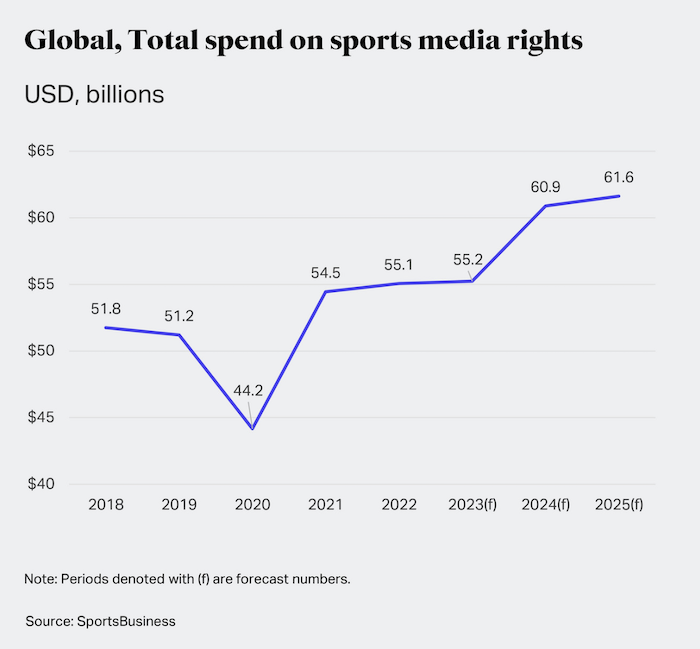This year has been a busy one for sporting events. Football fans will be treated to the Euro - the European Football Championship, followed by the Copa América. Then in the summer, the Summer Olympics will be held in Paris, followed by the Paralympics. SportsBusiness estimates that $60.9 billion is expected to be spent globally on sports rights alone this year, a fifth more than before the pandemic.

At a time when linear TV ratings are declining, sport is an exception that people still like to watch live. For example, this year's Super Bowl was watched by a record 123.4 million viewers across all platforms, up 7% from last year.
The interest in live streaming is also amplified by the struggle of individual players for broadcast rights. It's not uncommon for football competitions, for example, to fall almost entirely outside of free-to-air TV channels, leaving fans to subscribe to one, two or even more services to watch all the games in a season. The Czech market is no exception. On public Czech TV, those interested can watch the Czech national team or Czech teams in the European Cup, but they can no longer watch Champions League matches for free. These are on pay-TV Nova Sport 3 and 4, Premier Sport 1 and 2 or O2 TV. Premier League fans have to go to Canal+ Sport. And domestic league football is on O2 TV Fotbal.
"Sports rights have been a problem for all public service broadcasters for the last few years. Enormous viewer interest opens up significant opportunities for presentations by advertising and sponsorship partners, making sports rights a valuable commercial commodity that in recent years has increasingly been acquired by large multinationals rather than public service broadcasters, thanks to their financial capabilities,"
said Petr Dvořák, then director general of Czech Television, which thus managed to win the broadcasting rights to the UEFA Euro football championships for 2024 and 2028, three years ago.
However, football is not the only sport to be fragmented into different subscription services in this way. Tennis, golf, Formula 1 and hockey are similarly affected. In addition, major streaming platforms such as Amazon Prime or Netflix, which recently acquired the licence for the wrestling show Monday Right Raw for five billion dollars, are also getting into the sport. This move behind the paywall, where there is usually no room for ads, creates a problem for sponsors, who lose advertising space as a result.
In addition to this, a change in behaviour among young consumers must be taken into account. According to WARC, up to 93% of young people aged 18 to 24 consume sport on a weekly basis via social networks. But they are often more interested in the stories of athletes than in competitions or teams.
As a result, marketers of sports-related brands need to think better about their media strategies to reach the widest possible audience, but one that is spread across more media than ever before. "The challenge today is also the message itself, in the sense that it is clear that a one-size-fits-all solution will now not be as effective," says Silvia-Cristina Marinescu, Strategy Executive Director at OMD EMEA, adding that it is the blurring of the boundaries between channels and platforms, between video, audio and social media, that is also creating a unique opportunity for immersive, interactive and personalised advertising.
Source: mediaguru.cz

